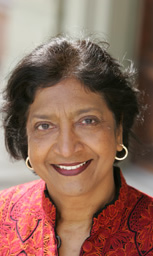The United Nations Commission on Human Rights (UNCHR) was a functional commission within the overall framework of the United Nations from 1946 until it was replaced by the United Nations Human Rights Council in 2006. It was a subsidiary body of the UN Economic and Social Council (ECOSOC), and was also assisted in its work by the Office of the United Nations High Commissioner for Human Rights (UNHCHR). It was the UN's principal mechanism and international forum concerned with the promotion and protection of human rights.
On 15 March 2006, the UN General Assembly voted overwhelmingly to replace UNCHR with the UN Human Rights Council
The UNCHR was established on 10 December 1946 at the first meeting of ECOSOC, and was one of the first two "Functional Commissions" set up within the early UN structure (the other being theCommission on the Status of Women). It was a body created under the terms of the United Nations Charter (specifically, under Article 68) to which all UN member states are signatories.
The body went through two distinct phases. From 1947 to 1967, it followed the policy of absenteeism, which meant that the Commission would concentrate on promoting human rights and helping states elaborate treaties, but not on investigating or condemning violators. It was a period of strict observance of the sovereignty principle.
In 1967, the Commission adopted interventionism as its policy. The context of the decade was of decolonization of Africa and Asia, and many countries of the continent pressed for a more active UN policy on human rights issues, especially in light of massive violations in apartheid South Africa. The new policy meant that the Commission would also investigate and produce reports on violations.
To allow better fulfillment of this new policy, other changes took place. In the 1970s, the possibility of geographically-oriented workgroups was created. These groups would specialize their activities on the investigation of violations on a given region or even a single country, as was the case with Chile. With the 1980s came the creation of theme-oriented workgroups, which would specialize in specific types of abuses.
None of these measures, however, were able to make the Commission as effective as desired, mainly because of the presence of human rights violators and the politicization of the body. During the following years until its extinction, the UNCHR became increasingly discredited among activists and governments alike.
The Commission held its final meeting in Geneva on March 27, 2006 and was replaced by the United Nations Human Rights Council in the same year.
The appointment of Navanethem Pillay as UN High Commissioner for Human Rights was approved by the General Assembly on 28 July 2008. She took up the post on 1 September 2008.
Ms. Pillay, a South African national, was the first woman to start a law practice in her home province of Natal in 1967. Over the next few years, she acted as a defense attorney for anti-apartheid activists, exposing torture, and helping establish key rights for prisoners on Robben Island.
She also worked as a lecturer at the University of KwaZulu-Natal, and later was appointed Vice-President of the Council of the University of Durban Westville. In 1995, after the end of apartheid, Ms. Pillay was appointed a judge on the South African High Court, and in the same year was chosen to be a judge on the International Criminal Tribunal for Rwanda, where she served a total of eight years, the last four (1999-2003) as President. She played a critical role in the ICTR's groundbreaking jurisprudence on rape as genocide, as well as on issues of freedom of speech and hate propaganda. In 2003, she was appointed as a judge on the International Criminal Court in the Hague, where she remained until August 2008.

In South Africa, as a member of the Women's National Coalition, she contributed to the inclusion of an equality clause in the country’s Constitution that prohibits discrimination on grounds of race, religion and sexual orientation. She co-founded Equality Now, an international women's rights organization, and has been involved with other organizations working on issues relating to children, detainees, victims of torture and of domestic violence, and a range of economic, social and cultural rights.
Ms. Pillay received a BA and a LLB from Natal University South Africa. She also holds a Master of Law and a Doctorate of Juridical Science from Harvard University. She was born in 1941, and has two daughters.

No comments:
Post a Comment
We would love to hear you comments and suggestion.Our aim is to provide a better environment for studying TNPSC,UPSC and IAS exams for the future generation